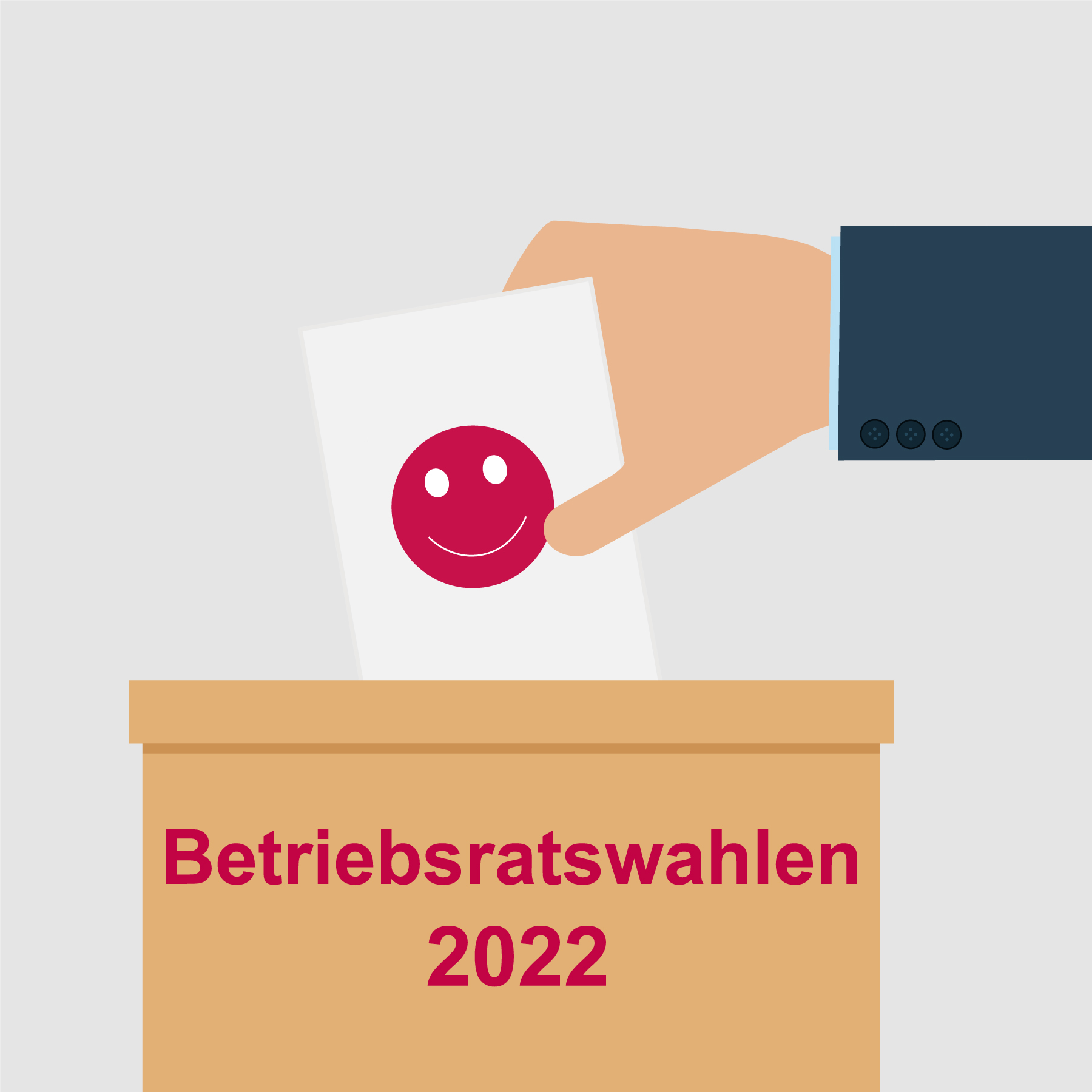22.11.2021
“Keep smiling...” – Smiley on ballot paper jeopardises works council election

German works council elections are held every four years between March and May, with the next periodic elections scheduled to take place in 2022. This is reason enough to take a closer look at the details of voting. In this post, we will look at what can happen when a voter adds an individual touch to his or her ballot paper.
According to a recent ruling of the German Federal Labour Court (Bundesarbeitsgericht – “BAG”, decision of 28 April 2021 – 7 ABR 20/20), a ballot paper decorated with a smiley is invalid under the German Election Rules Relating to the One-third Participation Act (Wahlordnung zum Drittelbeteiligungsgesetz – “WODrittelbG”). This decision could also be of interest when it comes to works council elections.
What happened in said case? Several persons had stood as candidates in the supervisory board election in a group of companies. One of the ballot papers was declared invalid because a smiley measuring about 1 cm in diameter had been drawn in the upper left corner outside the box intended for putting the cross on the ballot paper. This lead to a tie between two candidates. Candidate no. 1 lost the subsequent drawing of lots to candidate no. 2, who was elected to the supervisory board. In response to this, candidate no. 1 filed a lawsuit, demanding that the ballot paper which had been declared invalid be taken into account.
The Federal Labour Court clarified in the reasons for its decision that Section 13 German Election Rules Relating to the One-third Participation Act, which prohibits the marking of ballot papers, is a material electoral provision. This provision takes into account the principles of voting equality and secret ballot as fundamental basic principles by ensuring that a vote cast cannot be traced back to a particular voter.
A smiley also makes it possible to trace back the vote to a particular voter. Consequently, it is a distinctive feature that results in the ballot paper being invalid. It is not necessary that a specific person can actually be identified. Instead, it is sufficient that the additional marking of the ballot paper beyond the mark made by the voter to cast his or her vote might, in combination with other circumstances, allow conclusions to be drawn about the identity of the voter. In case of doubt, drawing conclusions about the identity of the voter should be deemed possible whenever the ballot paper contains an additional marking.
Although the Federal Labour Court’s decision was made in connection with supervisory board elections in an undertaking, the formulated principles are likely to also apply to works council elections. This view is supported above all by the similar wording of the rule applicable to works council elections, according to which ballot papers that contain a distinctive feature are to be deemed invalid.
The ultimate goal is to guarantee the principle of free elections at the level of undertakings and businesses through the requirement of a secret ballot. The requirement of uniform ballot papers is an important element in guaranteeing compliance with this principle.
The secret ballot is already jeopardised if there is an abstract risk of a particular voter being identified. This risk exists, in my opinion, whenever the ballot paper contains an additional marking, of whatever kind. Where such a marking exists, the identification of its author ultimately only depends on the amount of resources employed. Works council elections are and will always be a serious matter. This should be clearly pointed out by the electoral board in the course of the preparations for the election. There is room for humour and simplistic, eye-catching communications during the election campaign. On the ballot paper, however, they lead to invalid votes and can unnecessarily increase the efforts and costs involved in the election.

Paul Schreiner
Partner
Cologne,
Essen
paul.schreiner@luther-lawfirm.com
+49 221 9937 11691